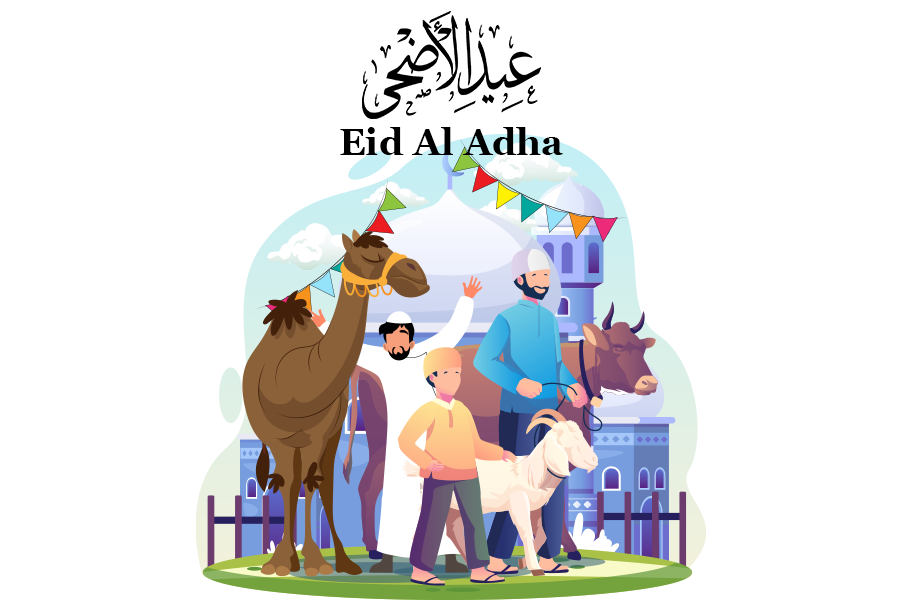Eid al-Adha, also known as the Festival of Sacrifice, holds profound significance in the Islamic calendar. It commemorates the willingness of Prophet Ibrahim to sacrifice his son as an act of obedience to Allah's command. This religious occasion is a time of reflection, gratitude, and celebration for Muslims worldwide.
Recomended Article: Top 10 Foods to Include in Your PCOS Diet
The Origins of Eid al-Adha
The story of Prophet Ibrahim's sacrifice is central to Eid al-Adha. It reflects his unwavering faith and submission to Allah. According to Islamic tradition, Ibrahim was willing to sacrifice his beloved son Ismail, but Allah intervened and provided a ram as a substitute. This narrative symbolizes the importance of obedience, trust, and divine intervention in the lives of believers.
The Religious Significance of Eid al-Adha
Eid al-Adha is deeply rooted in the concept of qurbani, or sacrifice, in Islam. Muslims around the world perform the act of qurbani by sacrificing an animal, such as a sheep, goat, or cow, as an offering to Allah. This act is a symbolic representation of Prophet Ibrahim's devotion and willingness to surrender to Allah's will. It also highlights the values of generosity, compassion, and sharing within the community.
Cultural Traditions and Practices
The celebration of Eid al-Adha is marked by various traditions and practices. Muslims gather for special prayers at mosques or outdoor spaces, where they seek blessings and express gratitude for Allah's blessings. Families come together to share festive meals, exchange gifts, and distribute food to the less fortunate, embodying the spirit of unity and charity.
Eid al-Adha Around the World
While the core principles of Eid al-Adha remain consistent, the observance of the festival varies across different countries and cultures. In some regions, elaborate festivities and cultural performances are part of the celebrations, showcasing the rich diversity within the global Muslim community. Modern influences and technological advancements have also shaped the way Eid al-Adha is celebrated in contemporary times.
Contemporary Relevance and Reflection
Beyond its religious and cultural dimensions, Eid al-Adha holds contemporary relevance in promoting values of empathy, compassion, and social responsibility. It serves as a reminder to extend kindness to others, especially those in need, and to embrace the spirit of sacrifice for the greater good. In a fast-paced world, Eid al-Adha encourages individuals to pause, reflect, and strengthen their spiritual connection.
Conclusion: Embracing the Spirit of Eid al-Adha
In conclusion, Eid al-Adha is more than just a religious observance; it is a testament to faith, sacrifice, and communal solidarity. As Muslims come together to celebrate this auspicious occasion, they embody the timeless values of devotion, compassion, and unity. Eid al-Adha serves as a reminder of the importance of faith, family, and charity in leading a meaningful and fulfilling life.





0 Comments